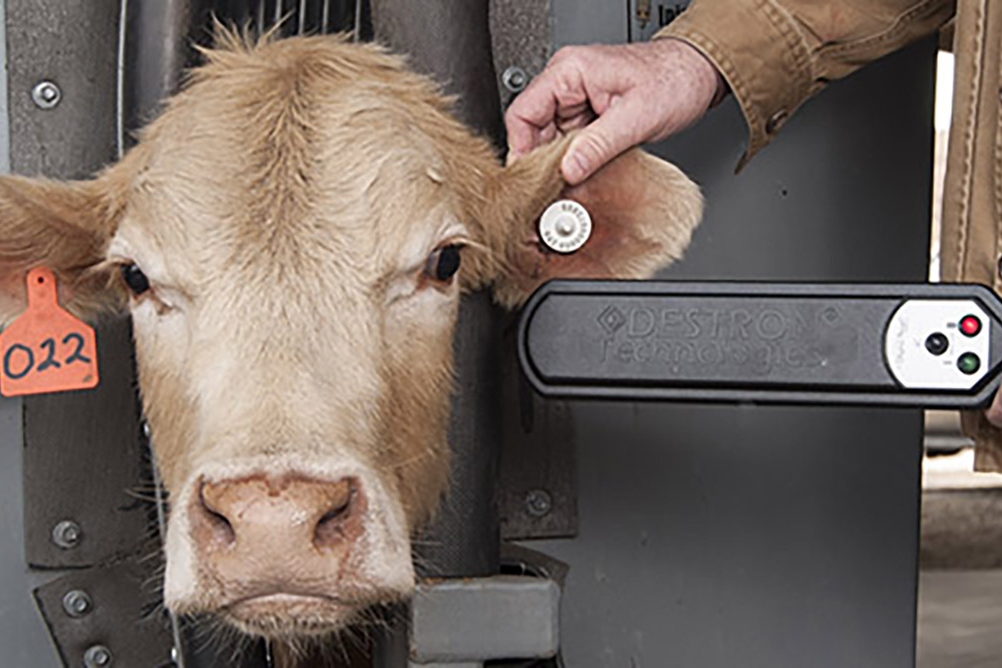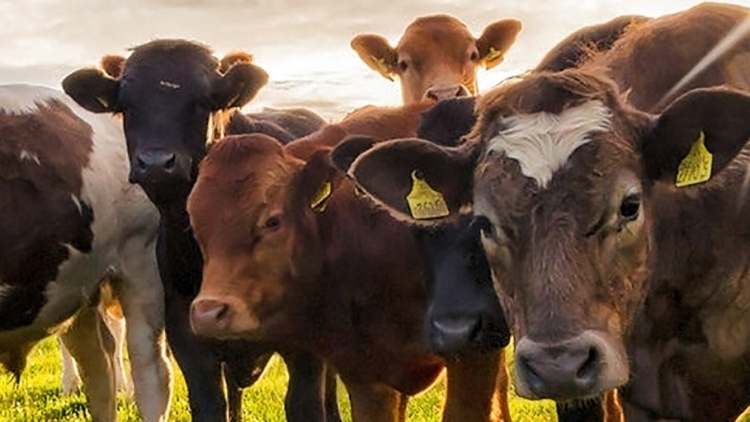Animal Disease Traceability
Animal disease traceability is knowing where diseased and at-risk animals are, where they have been, and when they were there. This information is important to ensuring a rapid response when animal disease events take place.
Although animal disease traceability does not prevent disease, an efficient and accurate traceability system reduces the number of animals and response time involved in a disease investigation. This, in turn, reduces the economic impact on owners and affected communities.
Free Identification Tags
Overarching Goals To Increase Traceability
A comprehensive animal disease traceability system is our best protection against a devastating disease outbreak. USDA is committed to implementing a modern system that tracks animals from birth to slaughter using affordable technology that allows for quick tracing of sick and exposed animals to stop disease spread. In September 2018, USDA established four overarching goals to increase traceability. These goals are:
- Advance the electronic sharing of data among Federal and State animal health officials, veterinarians, and industry, including sharing basic animal disease traceability data with the Federal animal health events repository;
- Use electronic identification tags for animals requiring individual identification in order to make the transmission of data more efficient;
- Enhance the ability to track animals from birth to slaughter through a system that allows tracking data points to be connected; and
- Elevate the discussion with States and industry to work toward a system where animal health certificates are electronically transmitted from private veterinarians to State animal health officials.
Traceability for Livestock Moving Interstate
Resources
View all Federally approved livestock facilities in the United States for handling of livestock pursuant to Title 9 of the Code of Federal Regulations.
- Official Animal Identification Device Standards (OAIDS) (748.83 KB)
- UHF Interim Tag Data Standards (921.6 KB)
- Official Eartags: General Criteria and Options (931.77 KB)
- Approved Animal Identification Number (AIN) Devices (1.09 MB)
- Non-840 Official Identification for Certain Imported Cattle and Bison (151.08 KB)
- Approved National Uniform Eartagging System (NUES) (365.84 KB)
- Approved Premises Identification Number (PIN) Devices for Swine (228.33 KB)
- Ultra-High Radio Frequency Identification: Demonstration Projects
- Executive Summary (193.73 KB)
- Summary and State Reports (1.4 MB)
- ADT Rule 2024: Interstate Movement Requirements for Cattle (224.45 KB)
- Horses and Other Equines (42.53 KB)
- Sheep and Goats
- Swine (50.29 KB)
- Poultry (41.81 KB)
- ADT Trace Performance Metric Report (2013–2022) (297.78 KB)
- ADT Monitoring and Compliance Overview (104.2 KB) and Guidelines (1.11 MB)
State Road Maps: Traceability Implementation Plans
The following States, Territories, and Tribal Nations are cooperators with USDA for the implementation of the Animal Disease Traceability (ADT) program. As part of the cooperative agreement with USDA, cooperators provide ADT Road Maps to reflect their long-term plan and approach for implementing the ADT. These reports are provided below.
- Alabama (307.91 KB)
- Alaska (421.92 KB)
- Arizona (430.09 KB)
- Arkansas (434.73 KB)
- California (417.1 KB)
- Colorado (410.43 KB)
- Connecticut (362.04 KB)
- Delaware (396.22 KB)
- Eastern Band of Cherokee Indians (336.29 KB)
- Florida (361.77 KB)
- Georgia
- Hawaii (365.31 KB)
- Idaho (380.37 KB)
- Illinois (458.25 KB)
- Indiana (331.22 KB)
- Iowa
- Kansas (433.71 KB)
- Kentucky (611.52 KB)
- Louisiana (428.41 KB)
- Maine (214.73 KB)
- Massachusetts (443.26 KB)
- Maryland (346.3 KB)
- Michigan (376.88 KB)
- Minnesota (459.97 KB)
- Mississippi (381.59 KB)
- Missouri (419.05 KB)
- Montana (365.54 KB)
- Nebraska (450.52 KB)
- Nevada (317.31 KB)
- New Jersey (512.54 KB)
- New Mexico (433.97 KB)
- New York (410.78 KB)
- North Carolina (445.13 KB)
- North Dakota (765.37 KB)
- Ohio (420.95 KB)
- Oklahoma (381.17 KB)
- Oregon (414.2 KB)
- Pennsylvania (501.14 KB)
- Rhode Island (321.18 KB)
- South Carolina (499.87 KB)
- South Dakota (388.04 KB)
- Tennessee (476.38 KB)
- Texas (452.52 KB)
- Utah (471.58 KB)
- Vermont (393.81 KB)
- Virginia (387.48 KB)
- Washington (483.85 KB)
- West Virginia (317.33 KB)
- Wisconsin (442.66 KB)
- Puerto Rico (442.13 KB)
- U.S. Virgin Islands (371.22 KB)
Contact Us
For more information on the ADT program, email us at traceability@usda.gov. We also encourage you to contact your State animal health official to learn more about your State's traceability activities and requirements.





